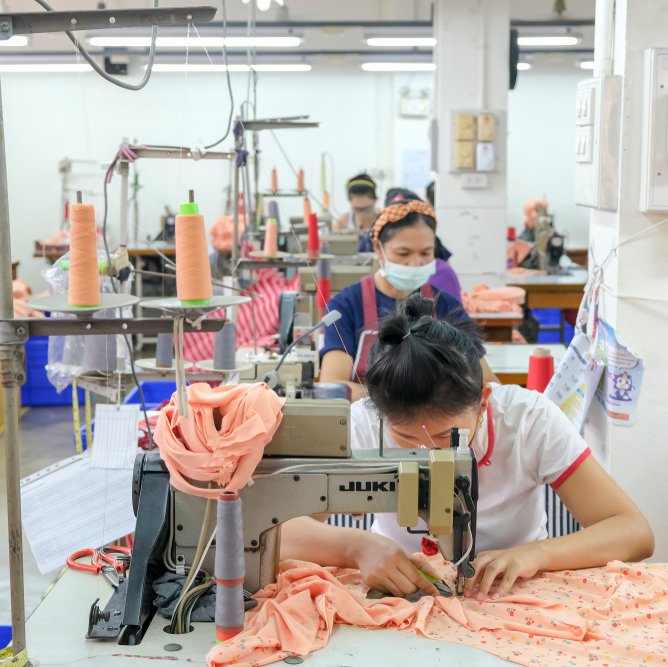Thailand: Myanmar workers exploited at VK Garments allegedly yet to receive adequate compensation as English High Court case continues; incl. cos responses & non-responses

Shutterstock
In December 2023, i newspaper reported Myanmar workers who suffered human rights abuses while working for VK Garments in Thailand are allegedly yet to receive adequate compensation from Ek Chai, Intertek, Tesco and VK Garment. The workers are allegedly living in poverty, including struggling to feed their families, due to the lack of adequate remedy.
The workers were employed by VK Garments in Thailand, producing F&F clothing for the Thai branch of Tesco’s business (Ek Chai, which was sold to Charoen Pokphand in December 2020). The workers experienced conditions similar to forced labour, including payment below the minimum wage, precarious living conditions, and confiscated work permits & immigration documents.
In 2020, the workers were awarded GBP 147,000 in a case against VK Garments in the Thai courts. The workers allege this is not enough and are seeking to appeal to the Thai Supreme Court to secure their unpaid wages.
In 2022, the workers sued Tesco, Ek Chai, and Intertek (the auditors who allegedly failed to identify serious issues at VK Garments until 2020) in the English High Court for negligence. However, the workers are allegedly yet to receive compensation.
The workers describe living in conditions of poverty with significant debt. They say they are struggling to feed their families and send their children school. One worker also highlights how she risks deportation back to Myanmar as she is unable to afford the cost of regularising her status in Thailand.
The article cites concerns from the Clean Clothes Campaign, highlighting that the court case in the English High Court will likely be lengthy.
The workers turned to the Thai courts in order to obtain their owed wages from VK Garments. But the Thai courts tend to side with the businesses in such cases. So the litigation in the UK is the workers’ only real hope for securing justice.Priscilla Dudhia, Clean Clothes Campaign
In January, the Business and Human Rights Resource Centre invited Ek Chai, Intertek, Tesco and VK Garments to respond to the article’s findings that the workers are yet to receive adequate compensation, leading to the risk of ‘poverty, joblessness, debt, detention and deportation’; outline the steps the companies have taken or will take to provide assistance, financial or otherwise, to the impacted workers, including through engagement with the legal case and settlement discussions; and to outline how the companies will address immediately the direct situation of the VK Garment workers who have been left in poverty in Thailand, including through their need for employment and support for their families.
Ek Chai, Intertek, Tesco and VK Garments did not respond to the Resource Centre’s request for comment.